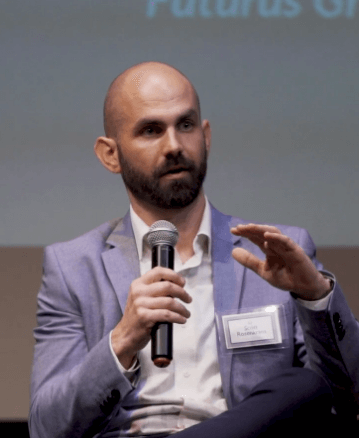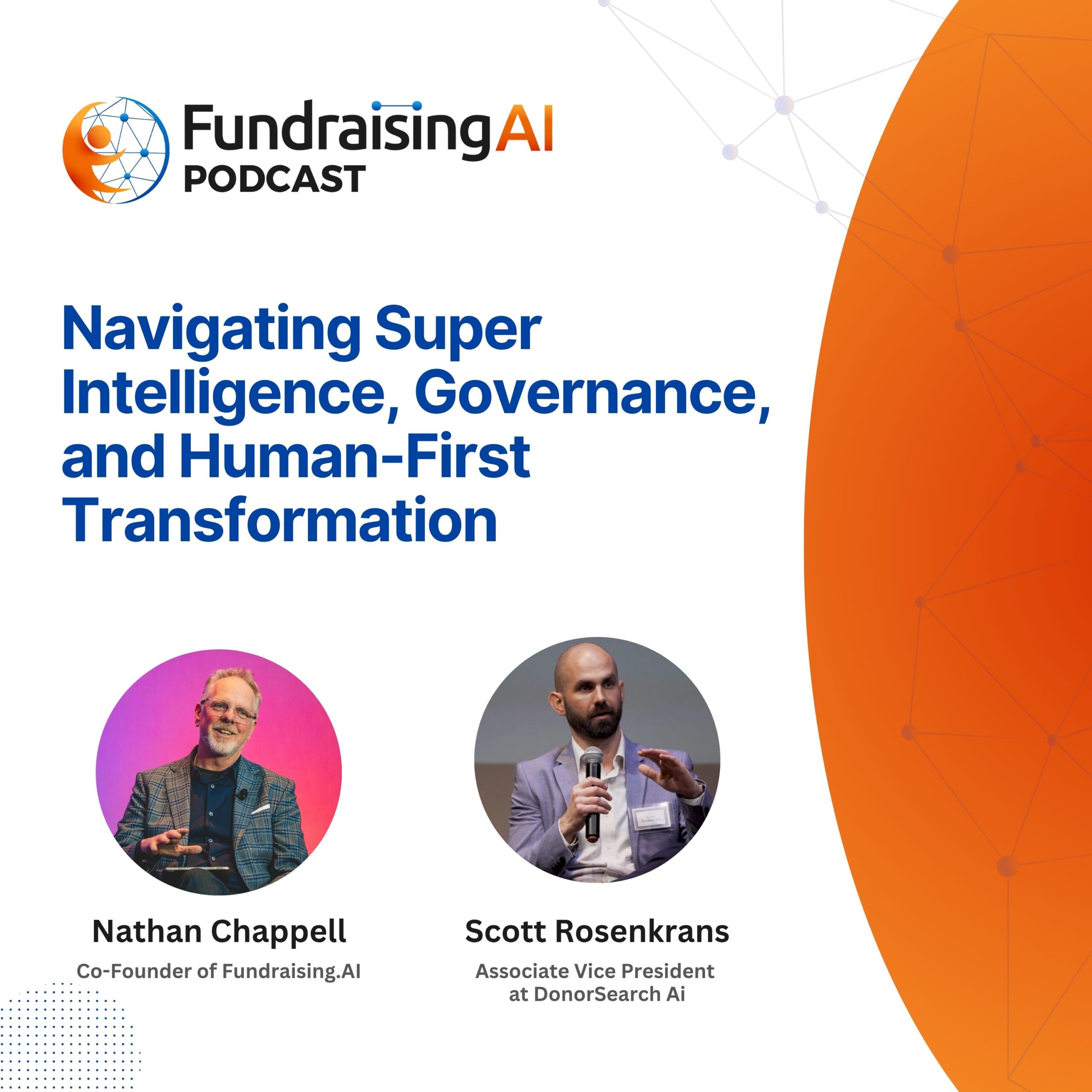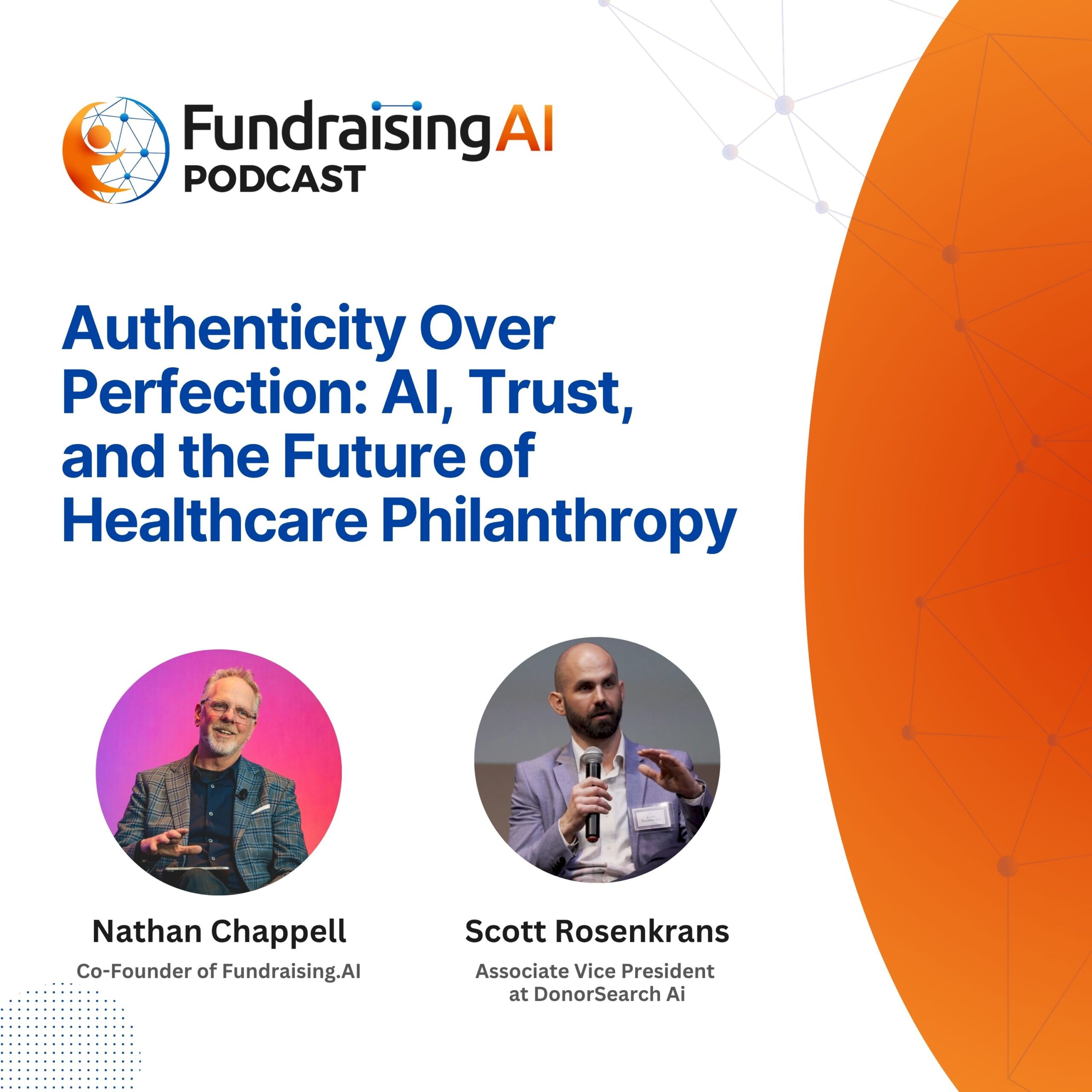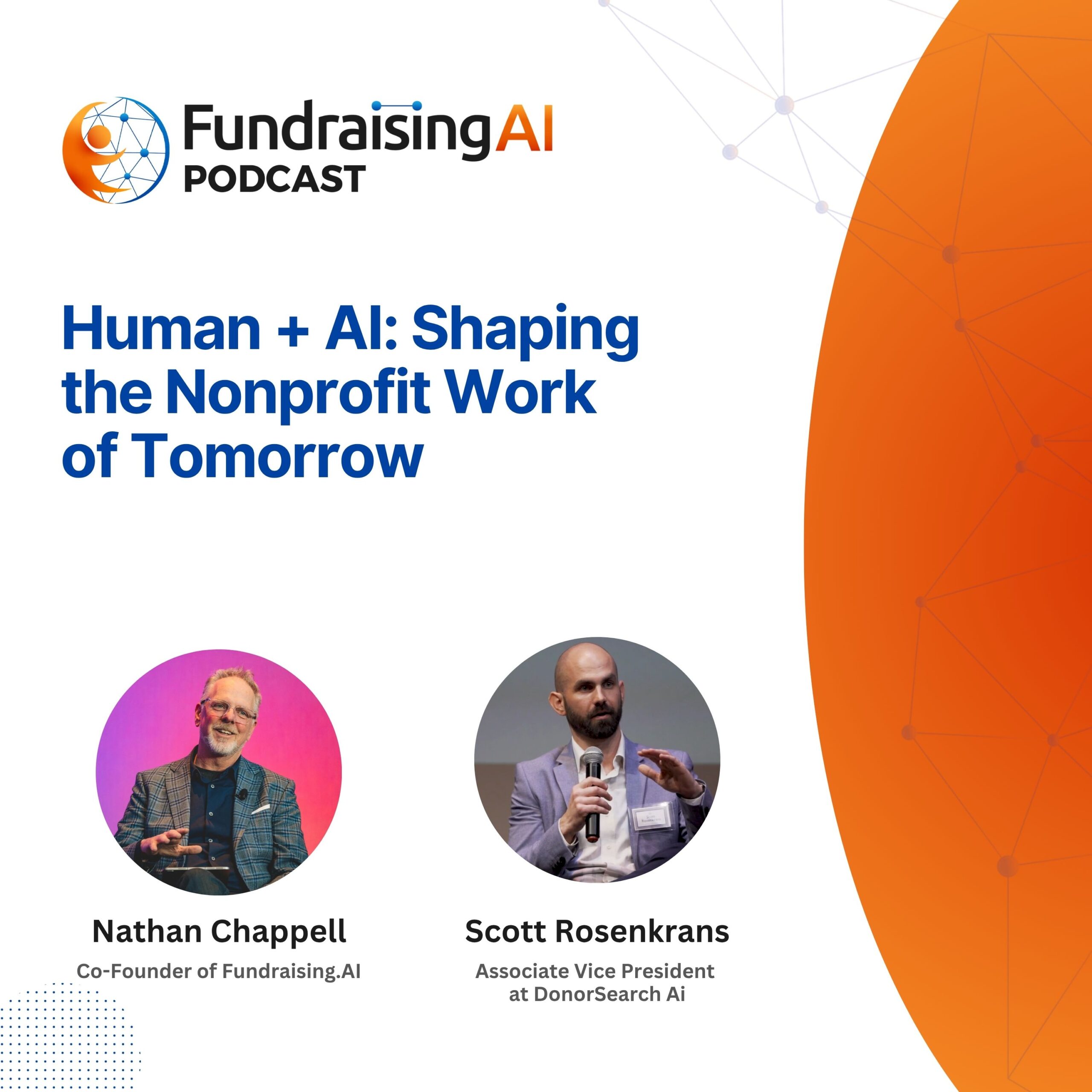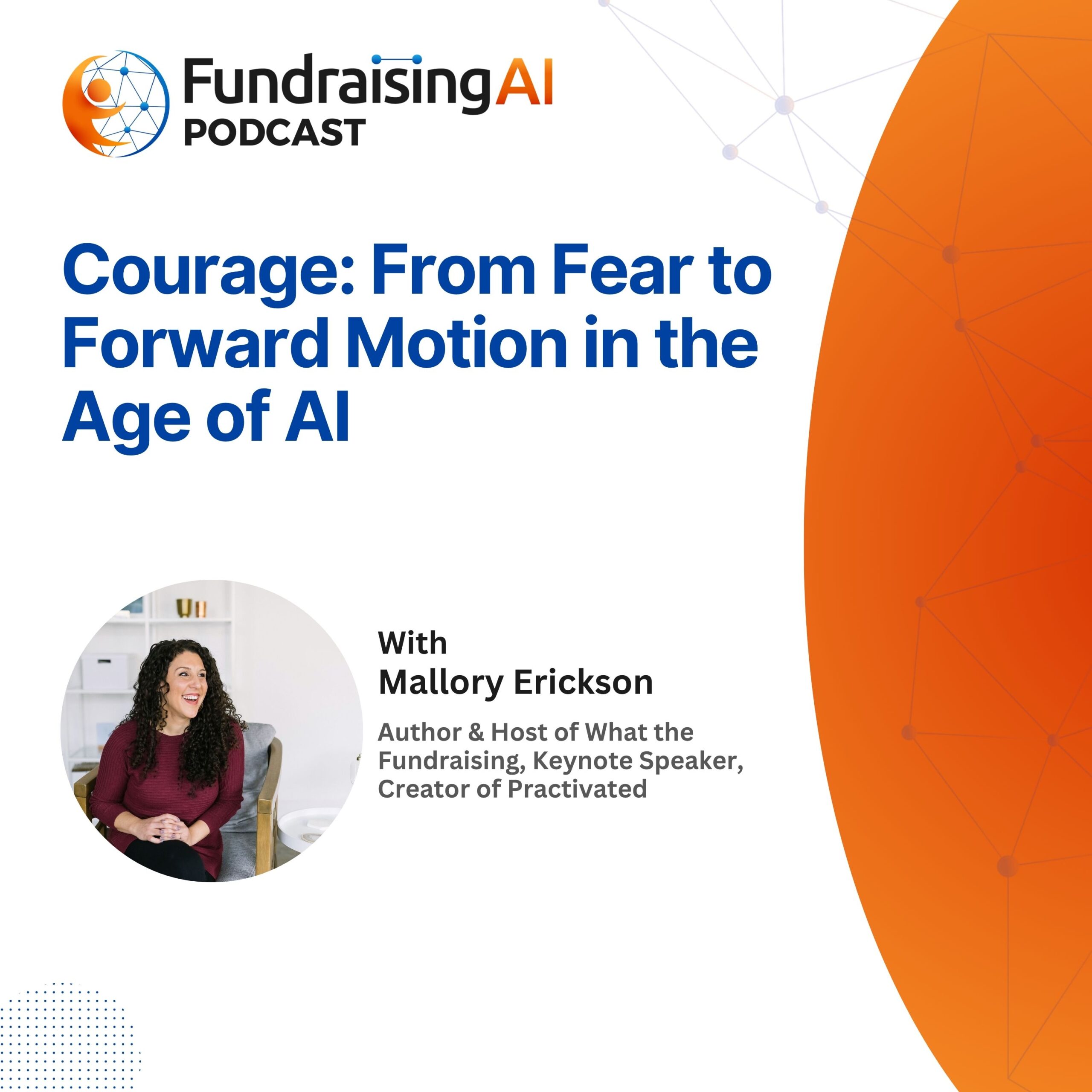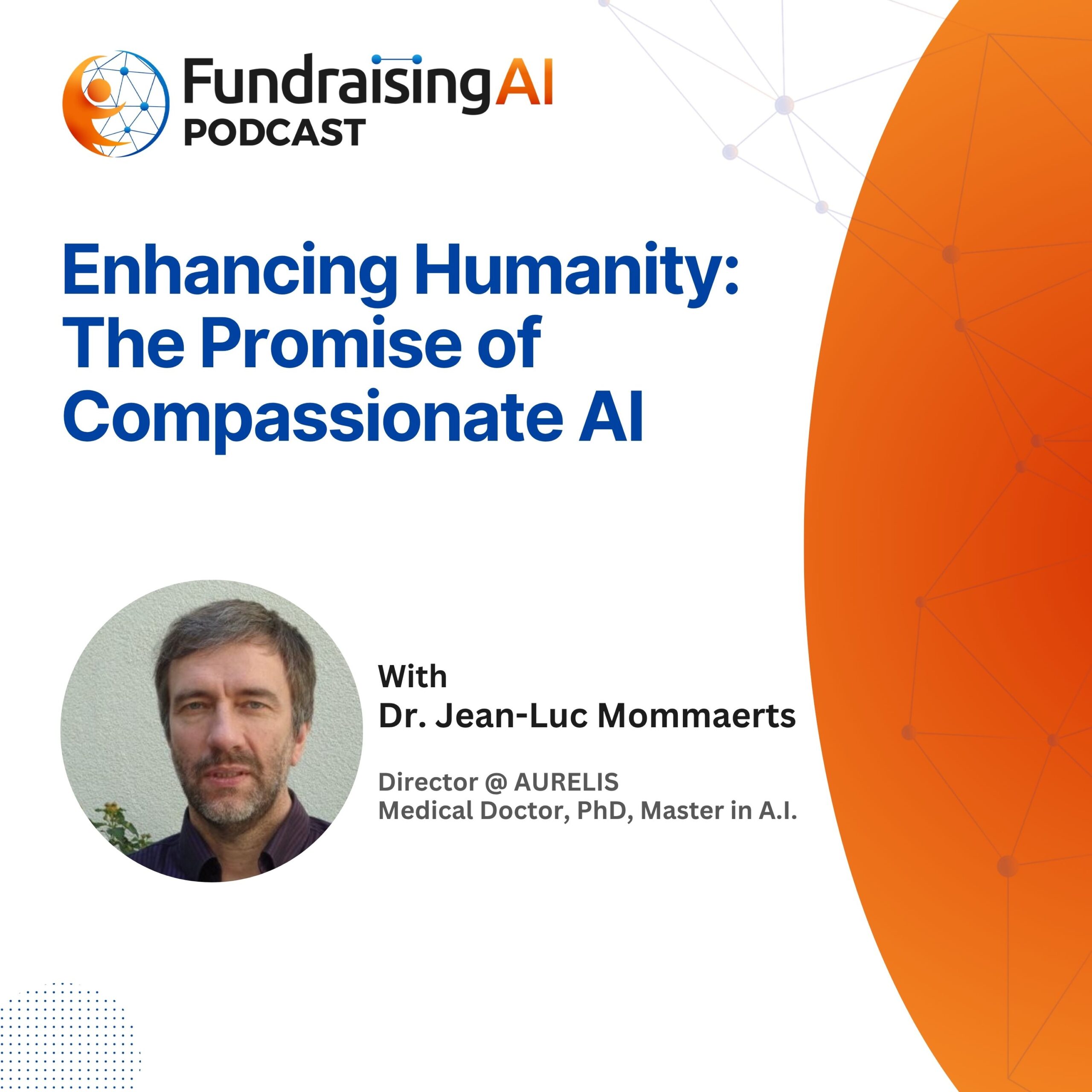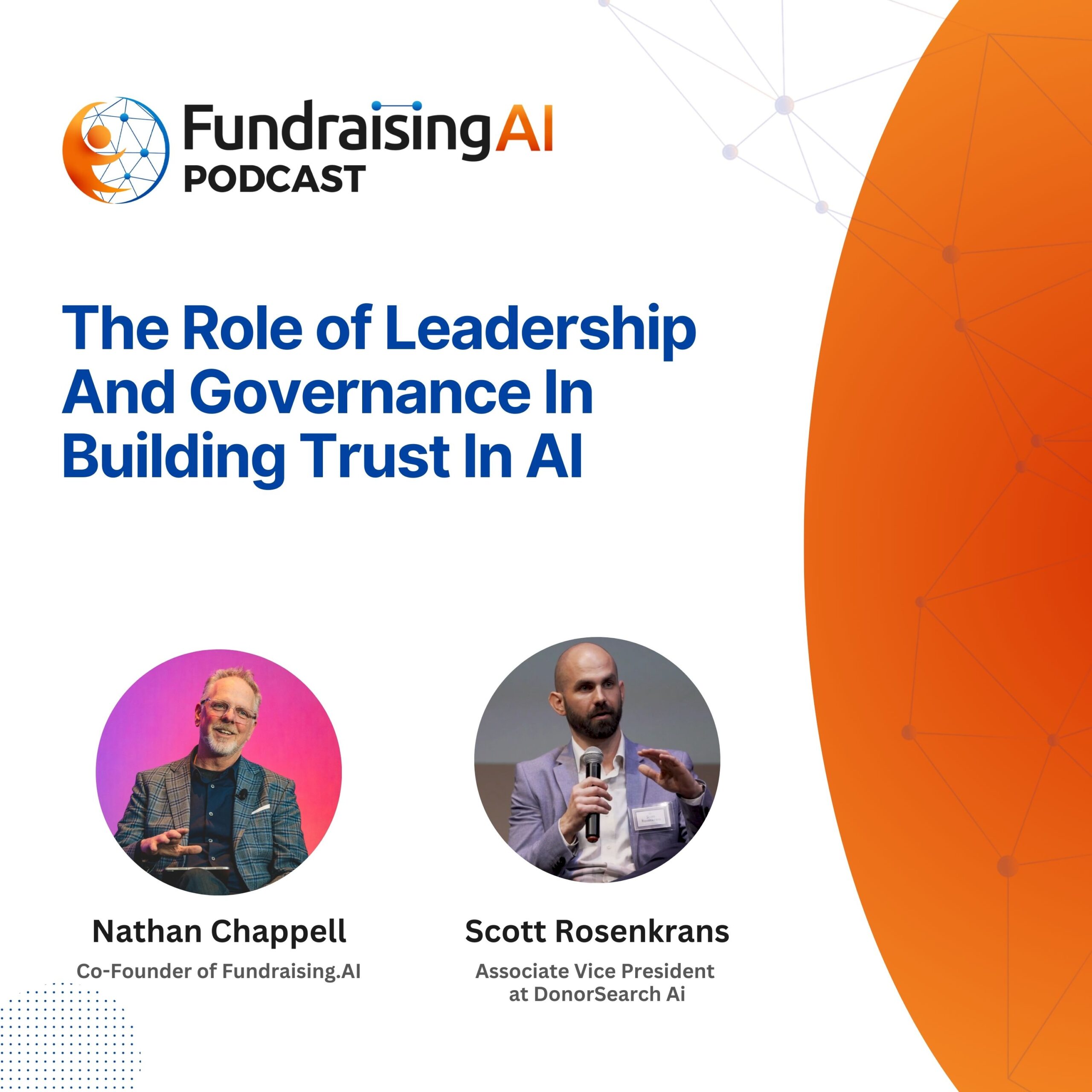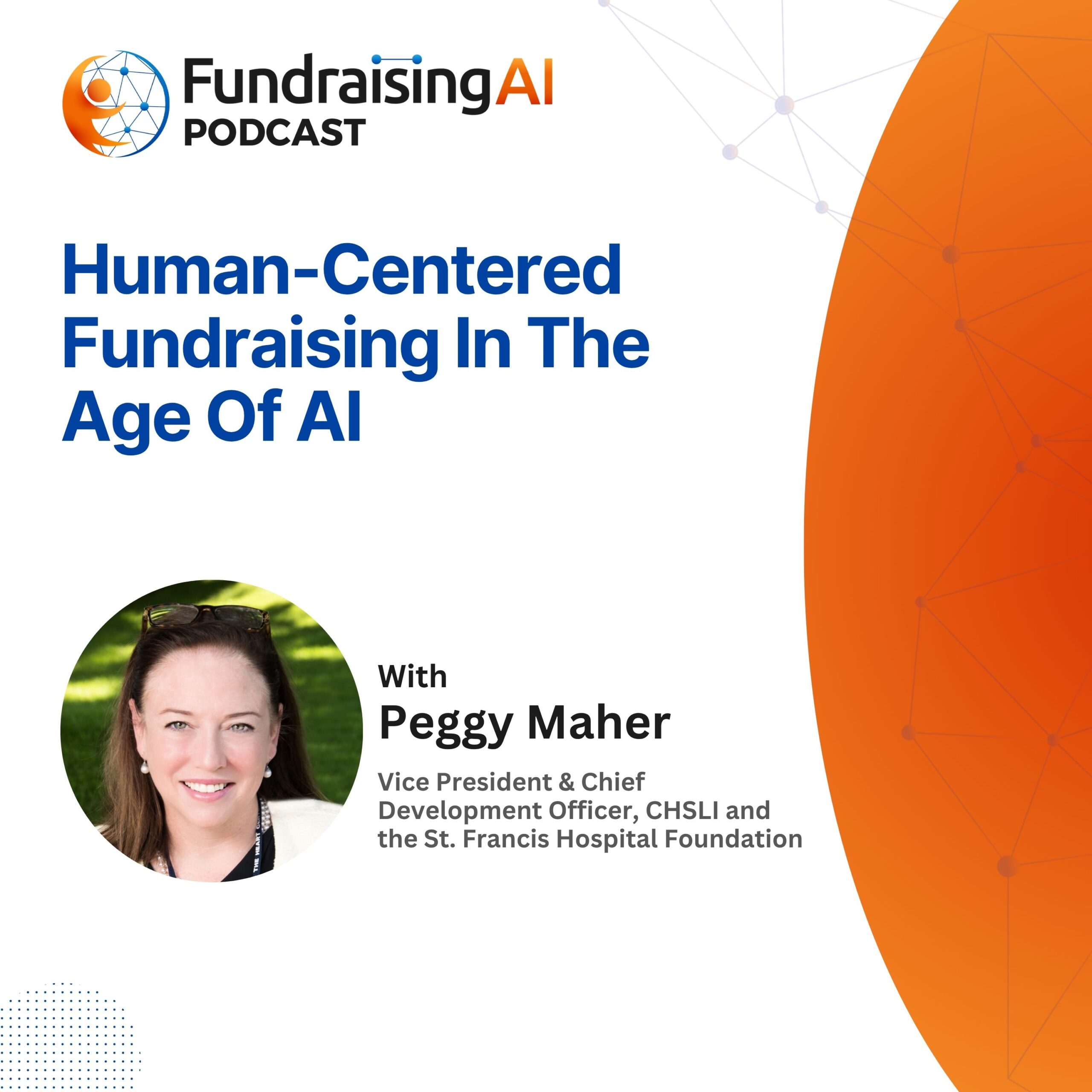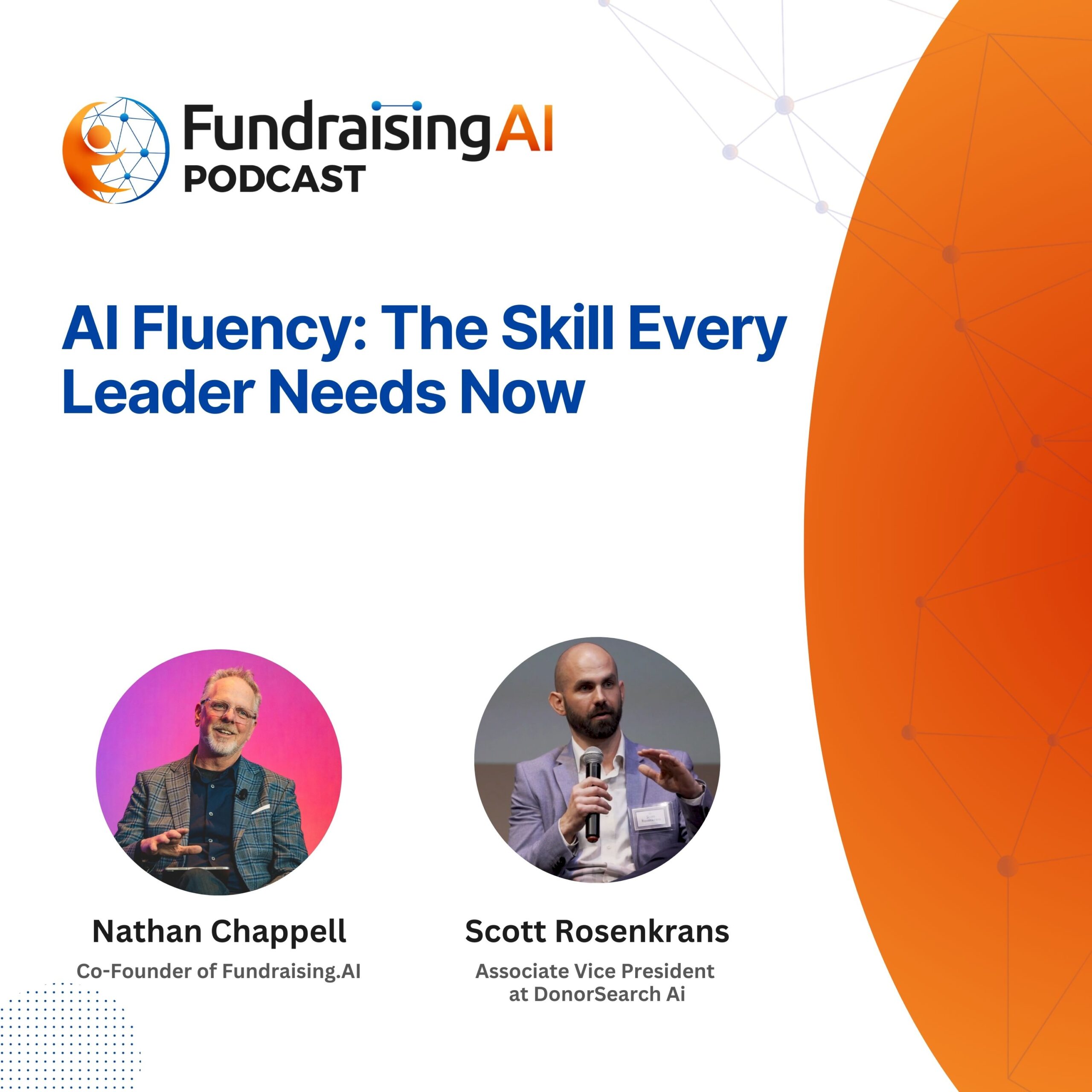Fundraising.AI
Episode 15
Episode 15 - AI Insights: Governance, Use Cases, and Industry Updates
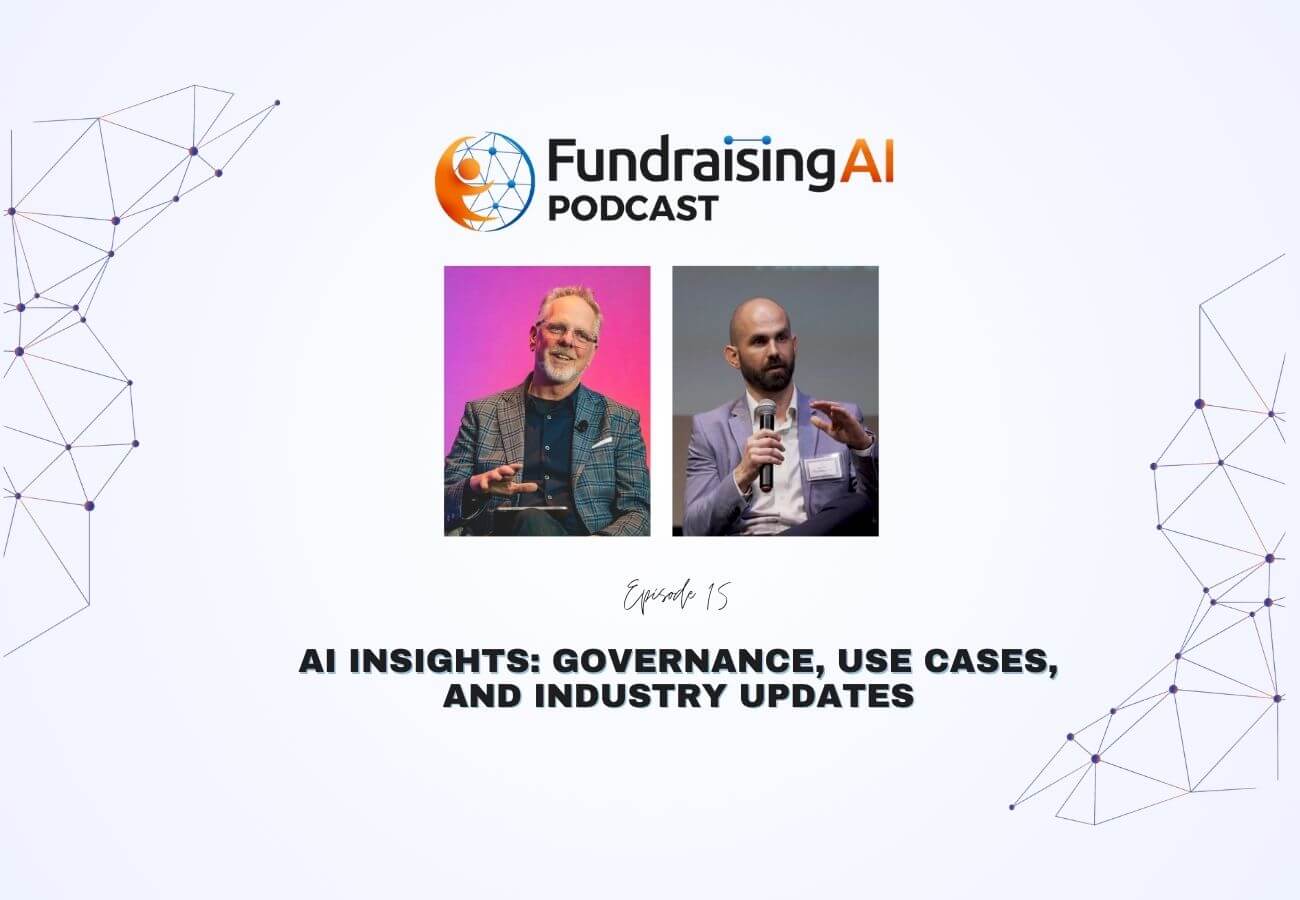
WATCH ON YOUTUBE

Listen To The Episode
OVERVIEW
In today’s conversation, Nathan and Scott dive into a whirlwind of updates and insights on the latest developments in AI. From reflections on recent conferences to discussions about the implications of AI on various industries, they cover it all!
First up, they reflect on their experiences at a recent conference where they observed a growing awareness and interest in AI governance policies among attendees. With the increasing adoption of AI in both personal and professional spheres, questions about governance and ethical use are becoming more pressing. Nathan and Scott share their thoughts on the importance of having frameworks in place and starting somewhere rather than striving for perfection.
Next, they delve into their favorite AI use cases of the week, highlighting examples demonstrating AI’s transformative potential across different domains. From AI-generated academic research papers to innovative approaches in nonprofit communications, they explore how AI reshapes workflows and opens up new possibilities. The conversation then turns to recent news stories, including Google’s legal dispute with OpenAI over data scraping and Microsoft’s ambitious plans to build a $100 billion supercomputer. They also discuss the implications of AI usage in Pulitzer Prize submissions, highlighting the increasing integration of AI tools in journalistic practices.


EPISODE HIGHLIGHTS
- [03:15] Insights from the AFP ICON Conference
- [10:24] AI Governance in Nonprofits
- [15:05] AI Concerns in Nonprofit Communities and AI Ascendancy
- [19:14] AI's impact on research, communication, and technology
- [32:45] AI Usage in Pulitzer Prize Submissions on the Rise: A Look at the Future of Journalism



TIPS AND TOOLS TO IMPLEMENT TODAY
- Begin discussing AI governance policies within your organization.
- Use frameworks to kickstart the discussion of AI governance policies and establish guidelines.
- Review existing organizational policies (e.g., internet usage, social media) to determine if AI governance components need to be integrated or if separate policies are required.
- Consider the ethical implications of AI usage and be transparent about AI involvement in research and reporting processes.
- Evaluate the potential benefits of paywall models for AI-assisted services, such as AI-generated search results.
- Disclose AI usage in submissions and communicate how AI was utilized to enhance outcomes.
- Acknowledge and address concerns about AI adoption, especially within the nonprofit sector. Provide resources and frameworks to alleviate anxiety and encourage informed decision-making.
- Prioritize personalized interactions, such as handwritten notes or personalized messages, to enhance donor relationships.
- Stay informed about industry trends and developments related to AI adoption, governance, and use cases.
- Continuously assess how industry trends and developments related to AI may impact your organization and adjust strategies accordingly.



FAVORITE QUOTES
- "Firstly, the risk of bias within both large language models and predictive AI is significant."- Nathan Chappell
- "Inequity in AI models will increase dramatically if we allow bias to influence predictions."- Nathan Chappell
- "The world is fundamentally shifting. May be in the future, there won't be a need for 14 sessions on AI. AI will just be ubiquitous with everything that we do and get over this kind of fear thing."- Nathan Chappell
- "The future of internet searches is going to be probably free for people who want to put up with ads and deal with that, and not free for others."- Nathan Chappell
- "Especially from a nonprofit orientation, the premium on personalization will never be greater due to automation, mass communication, and the ability to scale." - Nathan Chappell
- "Take an AI framework and use it as a conversation starter." - Scott Rosenkrans
- "You want to have something in place; it doesn't need to be perfect, and it won't be perfect because as soon as you set it up, technology is going to change." - Scott Rosenkrans
- "Get that conversation started, start asking the questions, start putting something in place. Have those guidelines and guardrails in place and start looking at each policy. For example, should we or should we not have personal OpenAI accounts? Or should we have a team account?" - Scott Rosenkrans
- "More content is not necessarily better. But, more valuable information is better." - Scott Rosenkrans
- "We know we need to have a framework, and I think that's a beautiful part of what FAI does. We've built this framework, and it can be a resource for nonprofits." - Scott Rosenkrans
MEET YOUR HOSTS
Nathan Chappell
As a thought leader, public speaker, author and inventor, Nathan is one of the world’s foremost experts on the intersection between Artificial Intelligence and philanthropy. Nathan serves as Senior Vice President of DonorSearch AI, where he leads AI deployments for some of the nation’s largest nonprofit organizations. Nathan’s subject matter expertise has been featured in several publications, including Fast Company, University of Notre Dame and the Association of Healthcare Philanthropy. In 2021, Nathan founded Fundraising.Ai as a member-centric collaboration of nonprofit professionals with a focus on data ethics, data equality, privacy and security, sustainability. Nathan presented the first TEDx on the topic of artificial intelligence and the future of generosity in 2018. Nathan is a member of the Forbes Technology Council and holds a Masters in Nonprofit Administration from University of Notre Dame, an MBA from University of Redlands, a certificate in International Economics from University of Cambridge and a certificate in Artificial Intelligence from MIT.

Scott Rosenkrans
Scott Rosenkrans is the Assistant Vice President of DonorSearch Ai and has been with the organization for three years. He began his journey in the nonprofit sector twelve years ago as a prospect researcher. He quickly became fascinated with data as he noticed the organization that he previously worked for was amassing a wealth of information but was unsure how to efficiently use the data and resources to its full potential. This led him to become interested in predictive modeling and data analytics. During this time, he began to create an immense commitment to delivering tailor-made machine learning models to nonprofits.
The thing that Scott loves most about working for DonorSearch is the ability to prioritize what is best for the client and nonprofit sector above all else. He believes that growth is our most important core value because the DSAi team continuously evolves and brings a unique perspective that provides value to our clients. He stays ahead of industry trends because of his insatiable drive to constantly try out new things.
Favorite nonprofit: Shriner’s Children Hospital because of their extreme commitment to providing exceptional medical care, while also alleviating the financial burdens on families.
